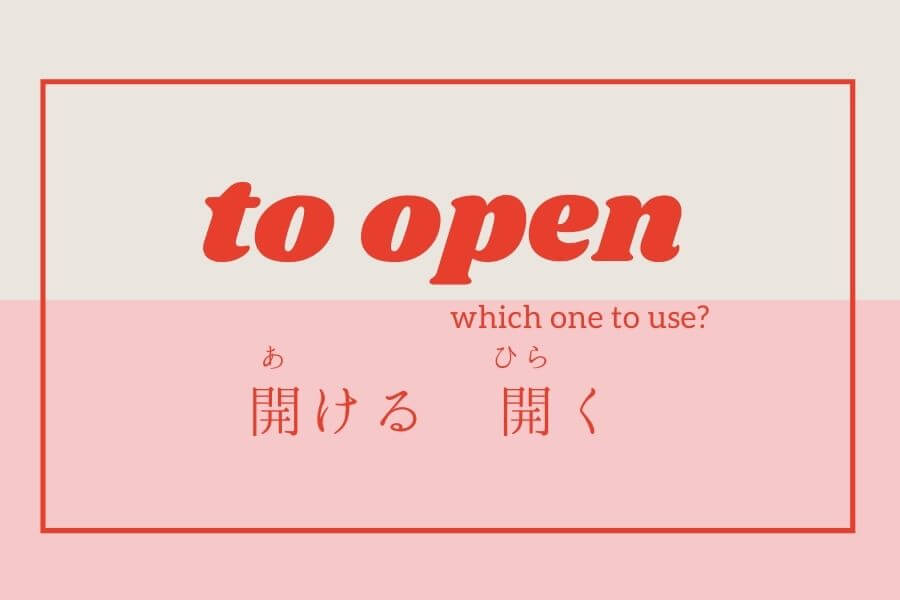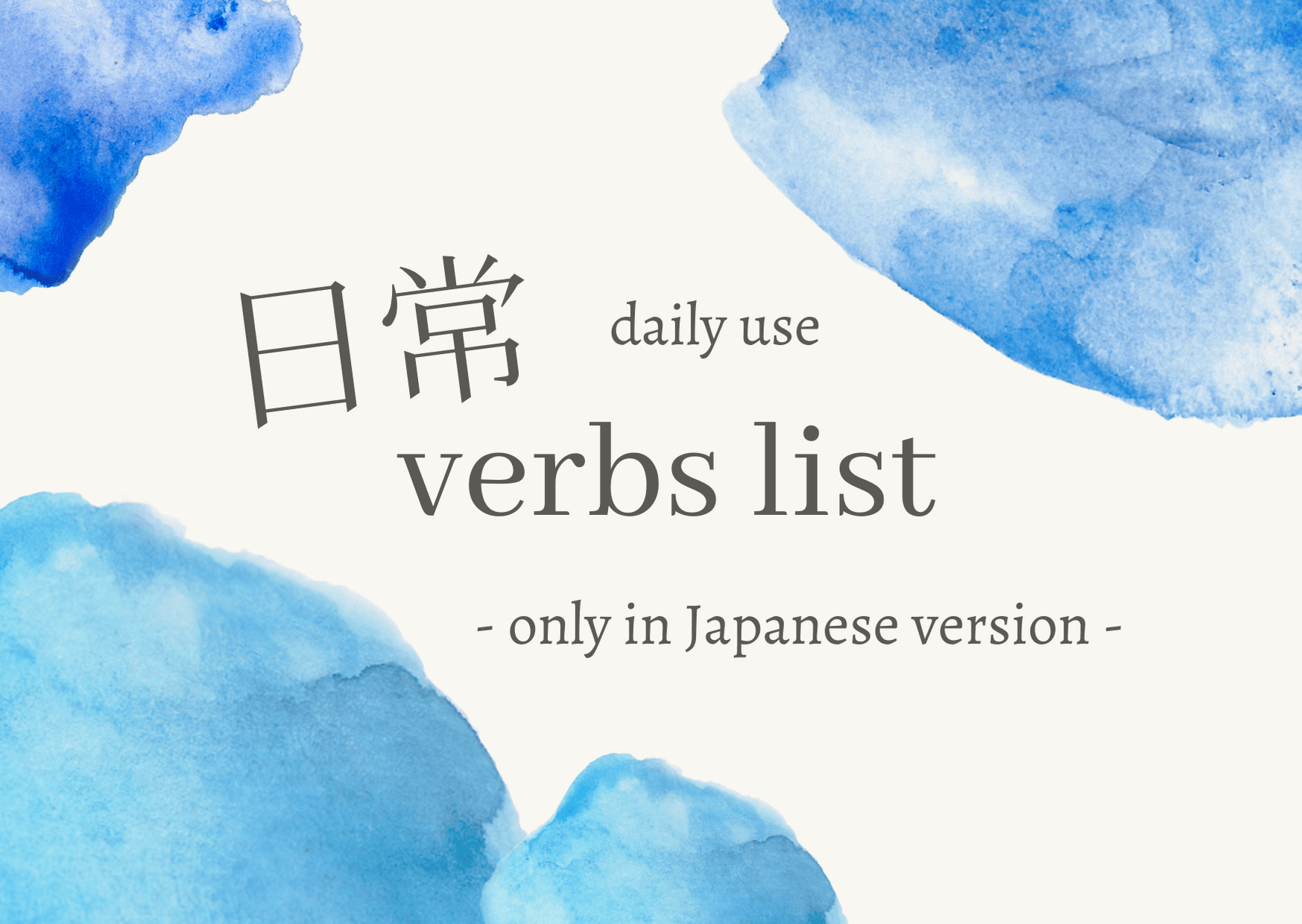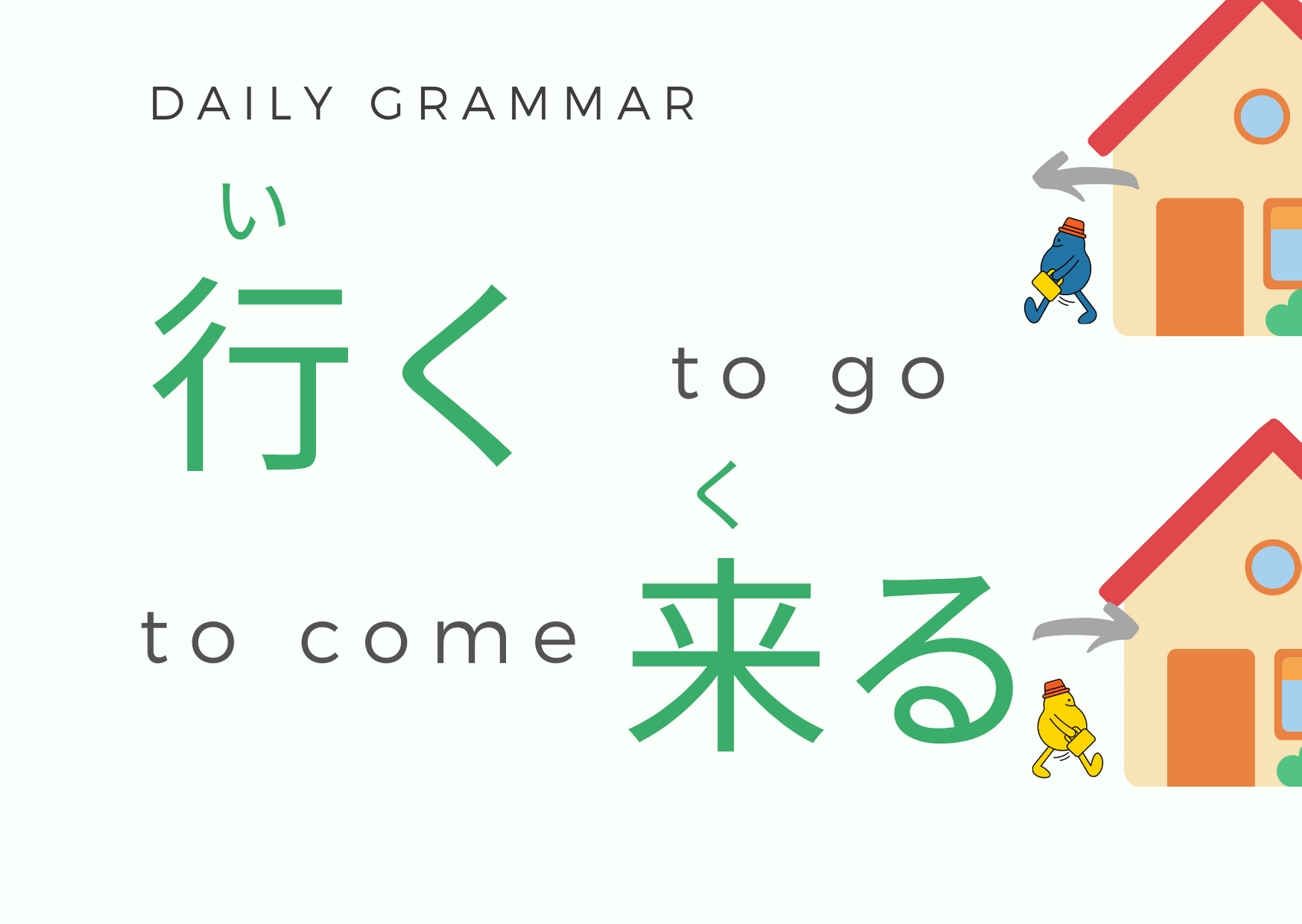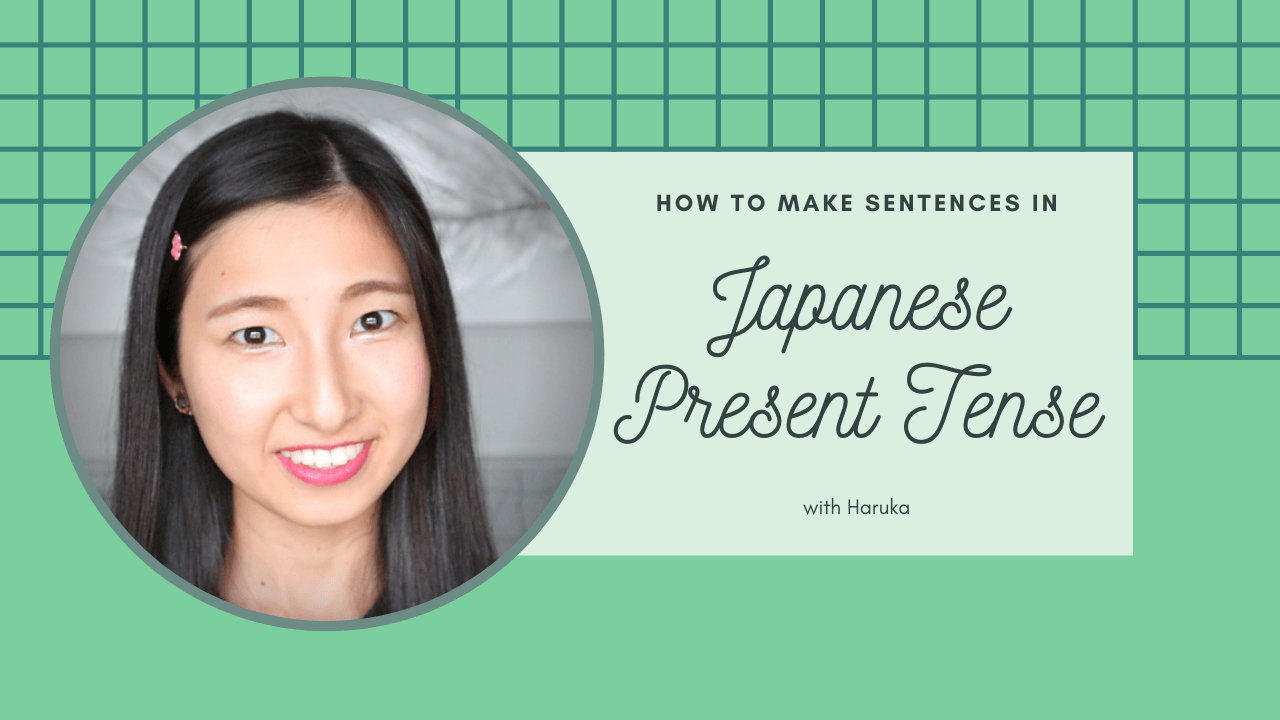In English, both あける and ひらく mean “to open”. In some cases, we can use both of them for the same object. However it is not every time. There is a slight nuance between them. 開ける(あける) あける means “to open”, but at the same time, it implies something can go through because it is open. …





